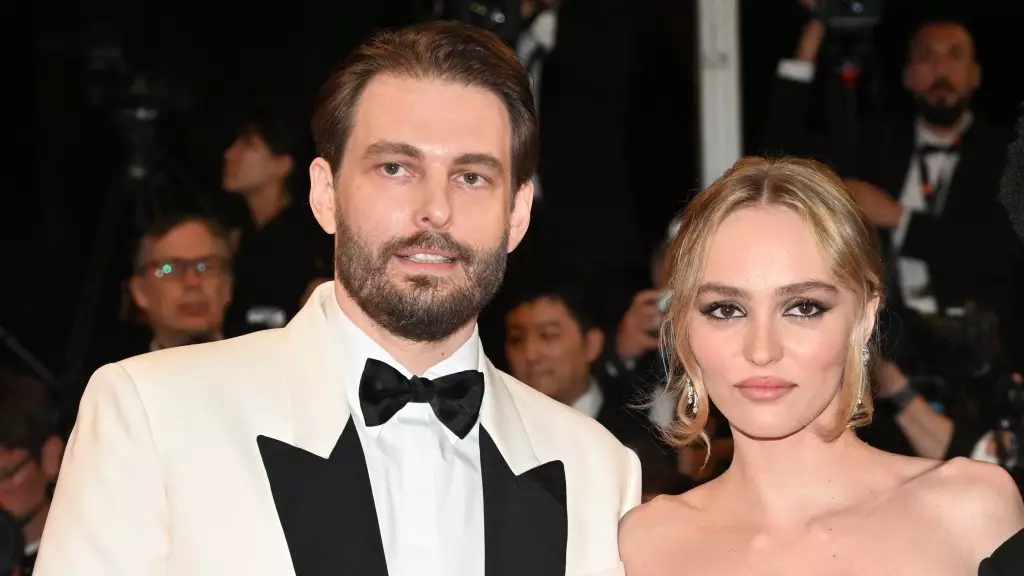In the realm of television, few shows have sparked as much debate as HBO’s *The Idol*, created by Sam Levinson. Despite its short-lived run, the series elicited polarized opinions—drawing ire from critics and audiences alike. Yet, Lily-Rose Depp, who starred as the lead character Jocelyn, champions her experience working alongside Levinson. In her recent appearance on the *Happy Sad Confused* podcast, she laid bare her sentiments about the controversy that surrounded the show, fervently defending the man she considers both a close friend and a part of her chosen family.
Depp’s unwavering support for Levinson highlights the dichotomy between public perception and personal experience in the entertainment industry. While the show generated a significant amount of backlash, she emphasized that Levinson’s intent was always to push boundaries, asserting that he had foreseen the controversies that would arise. This assertion raises questions about the responsibility of creators in an increasingly sensitive social climate and whether artistic freedom should remain paramount amid backlash.
During her discussion, Depp expressed her dismay at the negative comments directed towards Levinson, especially regarding his capabilities as a filmmaker. She articulated a profound sadness that such criticism could overshadow the nature and intent of his work. This reflection not only indicates her loyalty but also invites a critical reflection on how quickly the public’s discourse can pivot from understanding to vilification.
The backlash *The Idol* faced can be viewed as symptomatic of a broader trend in media where controversial subjects polarize viewers. For Depp, the experience of collaborating with Levinson was transformative, pushing her far beyond her comfort zones, which she framed as a significant period of personal growth. It prompts contemplation around the nature of artistic risk and the costs of exploring challenging narratives.
In her role as Jocelyn, a pop star navigating the treacherous waters of fame after a public breakdown, Depp embraced a character that many believe could reflect real-world issues faced by celebrities. The dynamic between Jocelyn and Tedros, portrayed by The Weeknd, further complicates this narrative by challenging traditional depictions of relationships within the entertainment sphere. Depp’s affection for Jocelyn highlights her appreciation of complex characters, a trait that often goes unrecognized in a fast-paced media landscape that favors simplicity over nuanced storytelling.
While Depp expresses love for the show and the character she brought to life, she acknowledges the role of societal buttons being pushed through its narrative. This awareness introduces an essential dialogue about the responsibility creators have to their audiences and the potential for art to elicit discomfort. Nevertheless, Depp maintains a resolute stance that the lessons learned during the making of *The Idol* compensated for the harsh criticisms, reinforcing her belief in the value of pushing boundaries.
Despite the critical praise from some quarters, *The Idol* experienced a swift cancellation after just one season, following a series of reshoots and shifts in creative direction. The creative process faced turbulence when director Amy Seimetz exited the project, leading to a drastically reduced episode count. The unfortunate conclusion of the series left a palpable heaviness as it aired against a backdrop of negativity, yet Depp remains undeterred by this outcome.
While controversy has characterized *The Idol’s* journey, it raises essential questions regarding audience expectations and the evolving landscape of television. The culmination of a show that attempted to challenge norms serves as a reminder that artistic endeavors often come with risks that may not always yield the desired reception.
A Reflection on Growth and Understanding
Ultimately, Depp’s reflections offer a valuable perspective on the dual realities of being an artist in a scrutinizing world. The personal growth she derived from her collaboration with Levinson serves as a reminder that initial reactions do not always accurately encapsulate an artistic journey. As the final curtain fell on *The Idol*, the lessons learned extend beyond the confines of the screen, echoing in the broader conversation about filmmaking, artistic freedom, and the willingness to confront challenging narratives head-on. The journey may have been tumultuous, but for Depp, it remains an unforgettable chapter of her life, infused with lessons and indelible memories of camaraderie and creativity.


Leave a Reply